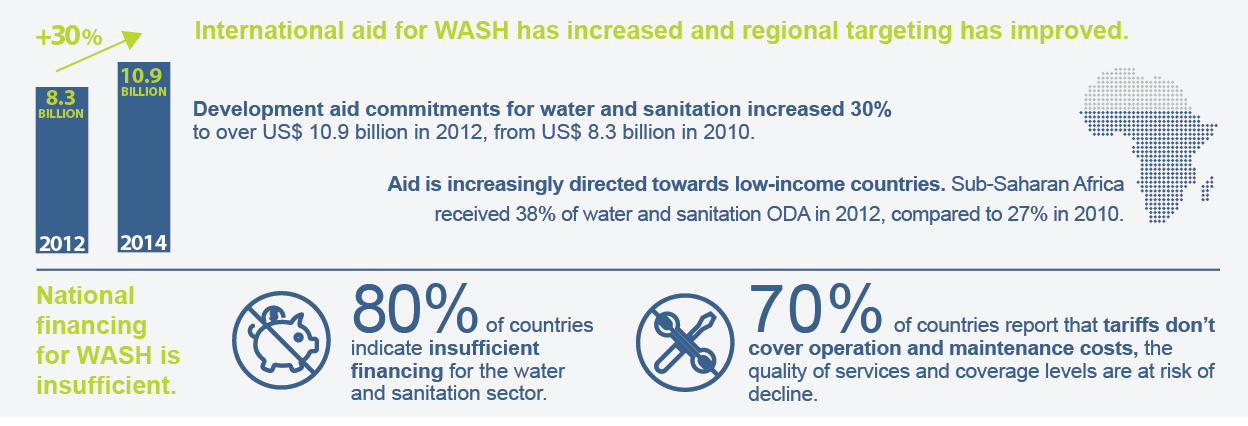The main conclusions from the 2014 UN-Water Global Analysis and Assessment of Sanitation and Drinking-Water (GLAAS) report, implemented by WHO and published biennially, point to strong political commitments around the world. National policies are largely in place, with over 80 % of the countries reporting to have approved national policies for drinking-water and sanitation, and 75% having policies for hygiene. However, despite strong political support, data unveiled weak national capacity to execute WASH plans. Only 20% of countries surveyed have national WASH plans that are being fully implemented and conduct regular reviews. The report also offers insights to explain these gaps between aspirations and reality.

Regarding financing, the report reveals there has been progress in financing the water and sanitation sector, however, national funding needs continue to outweigh available resources.
Beyond political and financial analysis, the report provides in-depth and up-to-date information on service providers, health care facilities and schools, human resources, etc. This data will hopefully help identifying the remaining bottlenecks and ultimately support decision-makers in making appropriate and timely investment decisions.
GLAAS is one of the principal sources of evidence for SWA partners and other major stakeholders engaged in the High Level Commitment Dialogue, including the development of commitments for the biennial SWA High Level Meetings. The 2014 GLAAS presents data from a record 94 countries and 23 external support agencies.[1] It offers a comprehensive analysis of strengths and challenges in the water, sanitation and hygiene (WASH) sector within and across countries.
--> To read the full 2014 GLAAS report or learn more about the main findings, please visit the WHO website.
--> To learn more about the work of our SWA partners to promote strong evidence-based decision making in the WASH sector, please visit our page on Evidence-Based Decision-Making.
[1] External Support Agencies comprise donor governments and other sources of funding/support (e.g. non-governmental organizations and foundations).
